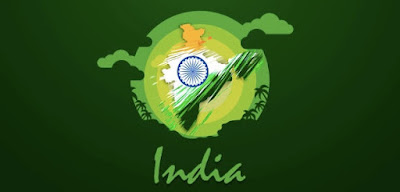The history of Hinduism
The history of Hinduism goes long back, it started somewhere between 2300B.C and 1500 B.C, though its roots are in the Historic Vedic religion of the Iron Age, after which Hindu synthesis began. Vedas were composed in the Vedic period, followed by the Epic, Puranic and classic Periods. In the 7th century Arabs and Muslim invasions begin, which last from about 1200-to 1757, during which many holy scriptures were burnt, temples were destroyed and rulers prevented practicing any other religion.
Based on the above facts and the history of these religions, I think that Islam and Christianity are almost the same in their beliefs, it’s more materialistic and revolves around the whole concept of Supreme God, who had set up certain rules which you have to follow in order attain heaven and if you fail to do so, you will go to hell, which is depicted as a very horrible place. According to me, these religions are set up on the foundation of fear and authority, which is not allowed to be questioned or objected to. It’s like there is One God who rules us all, just like a ruler, whoever breaks a law gets punished. Whereas religions like Hinduism and Buddhism, it allows the questioning authority to better understand the truth and knowledge. People are not considered apart or inferior from god (Parmatma) but a part of it. That God resides in everything, living or non-living, and everywhere as mentioned in Holy Book Bhagavad Gita. Hinduism and Buddhism teach us to respect all living and non-living and to adopt a harmless way of living life without harming nature around us.
Also, Hinduism gives us the freedom not to worship if we don’t want to, it’s not necessary to worship the godlike in Islam and Christianity and for that, we won’t get punished. Though, it follows the principle of “Karma” which is as simple as Newton’s Third Law, for action there is an equal and opposite reaction. In the same way, karma is we will get what we do, if we do bad deeds, we will get the same, not only that we do good things, good things will happen to us. Simple Universal Law, followed everywhere, even in non-living things. Christianity and Islam are all about a male-dominated rule, it’s like women don’t exist, and even if they do they can’t be worshiped, meant only to be bounded by rules. Unlike in Hinduism, where Shakti is considered as origin and source of the whole universe, she is worshipped and is a representation of pure divine power, primordial cosmic energy, a symbol of empowerment and divine mother.
CONCLUSION
So, we can conclude that religion is not an instruction manual with a set of rules and procedures to follow. Religion is something that helps us to lead a life in a right and honorable way, through holy books and scriptures which guide us throughout life so that we can deal with them easily. It’s not a set of laws with so many unanswerable WHYs? but an answer to how to solve our life problems in the right way.
REFERENCES
Flood, G. D. (2017). An introduction to Hinduism. Cambridge, Uk: Cambridge University Press.
(PDF) Buddhism and Development: A Background Paper. (n.d.). Retrieved April 22, 2020, from ResearchGate website: https://www.researchgate.net/publication/239591881_Buddhism_and_Development_A_Background_Paper
Ruchi Agarwal. (2015). Hinduism. Retrieved April 22, 2020, from ResearchGate website:https://www.researchgate.net/publication/282972765_Hinduism
Christianto, V. (n.d.). Philip Jenkins: The Lost History of Christianity. Www.Academia.Edu. Retrieved from https://www.academia.edu/42808191/Philip_Jenkins_The_Lost_History_of_Christianity



Comments
Post a Comment